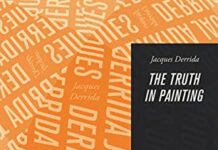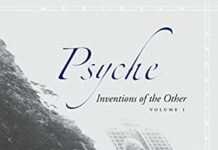
Ebook Info
- Published: 1998
- Number of pages: 112 pages
- Format: PDF
- File Size: 2.22 MB
- Authors: Jacques Derrida
Description
“I have but one language―yet that language is not mine.” This book intertwines theoretical reflection with historical and cultural particularity to enunciate, then analyze this conundrum in terms of the author’s own relationship to the French language.The book operates on three levels. At the first level, a theoretical inquiry investigates the relation between individuals and their “own” language. It also explores the structural limits, desires, and interdictions inherent in such “possession,” as well as the corporeal aspect of language (its accents, tones, and rhythms) and the question of the “countability” of languages (that is, their discreteness or factual givenness).At the second level, the author testifies to aspects of his acculturation as an Algerian Jew with respect to language acquisition, schooling, citizenship, and the dynamics of cultural-political exclusion and inclusion. At the third level, the book is comparative, drawing on statements from a wide range of figures, from the Moroccan Abdelkebir Khatibi to Franz Rosenzweig, Gershom Scholem, Hannah Arendt, and Emmanuel Levinas.Since one of the book’s central themes is the question of linguistic and cultural identity, its argument touches on several issues relevant to the current debates on multiculturalism. These issues include the implementation of colonialism in the schools, the tacit or explicit censorship that excludes other (indigenous) languages from serious critical consideration, the investment in an ideal of linguistic purity, and the problematics of translation. The author also reveals the complex interplay of psychological factors that invests the subject of identity with the desire to recover a “lost” language of origin and with the ambition to master the language of the colonizer.
User’s Reviews
Editorial Reviews: Review “In this elegant and engaging essay, Derrida turns to the subject of Derrida as Algerian Jew and as a dissociated Francophone.” — The Front Table”Clearly, Derrida is bravely turning away from decades of structuralist thinking that made even the slightest hint of transcendence into an intellectual taboo.” — Substance”Derrida has produced a text which takes philosophy and autobiography into the closest possible proximity; yet the result is something far more significant than the personal reminiscences of a philosopher.” — Times Literary Supplement From the Inside Flap “I have but one language—yet that language is not mine.” This book intertwines theoretical reflection with historical and cultural particularity to enunciate, then analyze this conundrum in terms of the author’s own relationship to the French language.The book operates on three levels. At the first level, a theoretical inquiry investigates the relation between individuals and their “own” language. It also explores the structural limits, desires, and interdictions inherent in such “possession,” as well as the corporeal aspect of language (its accents, tones, and rhythms) and the question of the “countability” of languages (that is, their discreteness or factual givenness).At the second level, the author testifies to aspects of his acculturation as an Algerian Jew with respect to language acquisition, schooling, citizenship, and the dynamics of cultural-political exclusion and inclusion. At the third level, the book is comparative, drawing on statements from a wide range of figures, from the Moroccan Abdelkebir Khatibi to Franz Rosenzweig, Gershom Scholem, Hannah Arendt, and Emmanuel Levinas.Since one of the book’s central themes is the question of linguistic and cultural identity, its argument touches on several issues relevant to the current debates on multiculturalism. These issues include the implementation of colonialism in the schools, the tacit or explicit censorship that excludes other (indigenous) languages from serious critical consideration, the investment in an ideal of linguistic purity, and the problematics of translation. The author also reveals the complex interplay of psychological factors that invests the subject of identity with the desire to recover a “lost” language of origin and with the ambition to master the language of the colonizer. From the Back Cover “In this elegant and engaging essay, Derrida turns to the subject of Derrida as Algerian Jew and as a dissociated Francophone.”—The Front Table“Clearly, Derrida is bravely turning away from decades of structuralist thinking that made even the slightest hint of transcendence into an intellectual taboo.”—Substance About the Author Jacques Derrida was Director of Studies at the Ecole des Hautes Etudes en Sciences Sociales, Paris, and Professor of Humanities at the University of California, Irvine. Among his books translated into English is Resistances of Psychoanalysis (Stanford, 1998). Read more
Reviews from Amazon users which were colected at the time this book was published on the website:
⭐The description of singular experience but so much can be drawn and extended beyond the personal from these insights about language, the question of a mother tongue, and issues of translation.
⭐”Monolingualism of the Other; or, The Prosthesis of Origin,” by Jacques Derrida, is a compelling blend of autobiographical material and cultural criticism. Originally published in French in 1996, the text has been translated into English by Patrick Mensah. According to a note at the beginning of the book, a shorter, different version of the text was delivered orally at a colloquium at the Louisiana State University, Baton Rouge, in 1992.In the book, Derrida reflects on his past as an Algerian Jew living under French colonialism. He raises questions about language politics, personal identity, cultural domination, the notion of a “mother tongue,” and the idea of “metalanguage.” He reflects on the practical mechanics of French colonial administration in Algeria, and on Algeria’s Jewish population: “a disintegrated ‘community,’ cut up and cut off.” He also discusses his own problematic relationship with the French language.I found “Monolingualism of the Other” absolutely gripping. Although Derrida’s prose (as translated by Mensah) sometimes strikes me as convoluted to the point of obscurity, I often found Derrida’s style to be elegant, even poetic, and very accessible. But be warned: if you’re intimidated by phrases like “ontico-ontological re-mark,” “a pre-egological ipseity,” or “the hegemony of the homogeneous,” the book may be a bit much to take.But many will, I believe, tear into this challenging text with gusto. I believe that the issues raised by Derrida in this book are relevant to many other cultural phenomena: the debate over Black English, the political and literary recognition of creole and pidgin languages, the ongoing efforts to preserve the Celtic languages, etc. If you have a serious interest in these and related issues, I strongly recommend this book.
⭐I am not finished my workning with the book
⭐This small, but fascinating, book opens with a semi-autobiographical note: I am monolingual. My monolingualism dwells, and I call it my dwelling.” But it quickly launches into Derrida’s signature philosophical moves. The book asks to examine our assumption that in an age of globalization, claims to multilingualism are always superior to the acknowledged state of being monolingual.
⭐Jacques Derrida, as well as in his other oeuvres, builds up a negative or reflective meditation upon language. Hereby, he bears a family resemblance to Michel Foucault. The book is elaborating a polyvocal phenomenon, involving the problematic of language, identity, psychic identification, cultural hegemony ( a target of verbal attack in his discourse). Besides, it sketches out the ideology behind the scene, that is, the agony of in-between identification in the Algerian Jew. It is a rich and illuminating work that can be applied to censor the phenomena of “diaspora,” “citizenship,” migration and so forth in our contemporary epoch.
⭐The book, inheriting and deviating the previous ones of Jacques Derrida. It contains multi-layer of signification or ‘inter-textuality’ as Kristeva suggests in Revolution in Poetic Language. In the first stance, French is a materialistic of identification. In the second, it’a a point of resistance and rebellion. For, the linguistic characteristic of French as to Derrida possesses the significance of racial discrimination, cultural hegemony and ‘grand narrative’ covertly. The aforesaid is mainstream of his discourse within this book. Of course, hereby some ideologies and the problematic of migration and agony of in-between identification are left behind.
⭐I’ll admit right now that this is the first (and probably last) of Derrida’s books that I’ve read cover to cover. Therefore I’m sure all those converted post-modernists will lambast me for not fully grasping the meaning of this book since I can’t put it in the context of Derrida’s other works.Nonetheless there is some interesting stuff here for the newcomer, especially anyone interested in what it means to have a language as ‘one’s own’ or to have a ‘mother tongue.’ Derrida asks these questions in reference to his experiences as a French-speaking Algerian Jew and as a participant at a conference in French-speaking Louisiana (where this work was first presented). The whole book is about Derrida’s problems with identity and language, and he is mildly interesting in drawing out some paradoxes like ‘we only ever speak one language’ and ‘we never speak only one language.’ He documents his personal problems with language, claiming that ‘I feel lost outside the French language.’Yet Derrida writes in a very annoying style, creating new words every other page and presenting the book as if it were the transciption of a dialogue. It’s also overpriced unless you’re a Derrida fanatic, which means you probably already own it anyway.Not exactly a must read.
Keywords
Free Download Monolingualism of the Other: or, The Prosthesis of Origin (Cultural Memory in the Present) 1st Edition in PDF format
Monolingualism of the Other: or, The Prosthesis of Origin (Cultural Memory in the Present) 1st Edition PDF Free Download
Download Monolingualism of the Other: or, The Prosthesis of Origin (Cultural Memory in the Present) 1st Edition 1998 PDF Free
Monolingualism of the Other: or, The Prosthesis of Origin (Cultural Memory in the Present) 1st Edition 1998 PDF Free Download
Download Monolingualism of the Other: or, The Prosthesis of Origin (Cultural Memory in the Present) 1st Edition PDF
Free Download Ebook Monolingualism of the Other: or, The Prosthesis of Origin (Cultural Memory in the Present) 1st Edition





